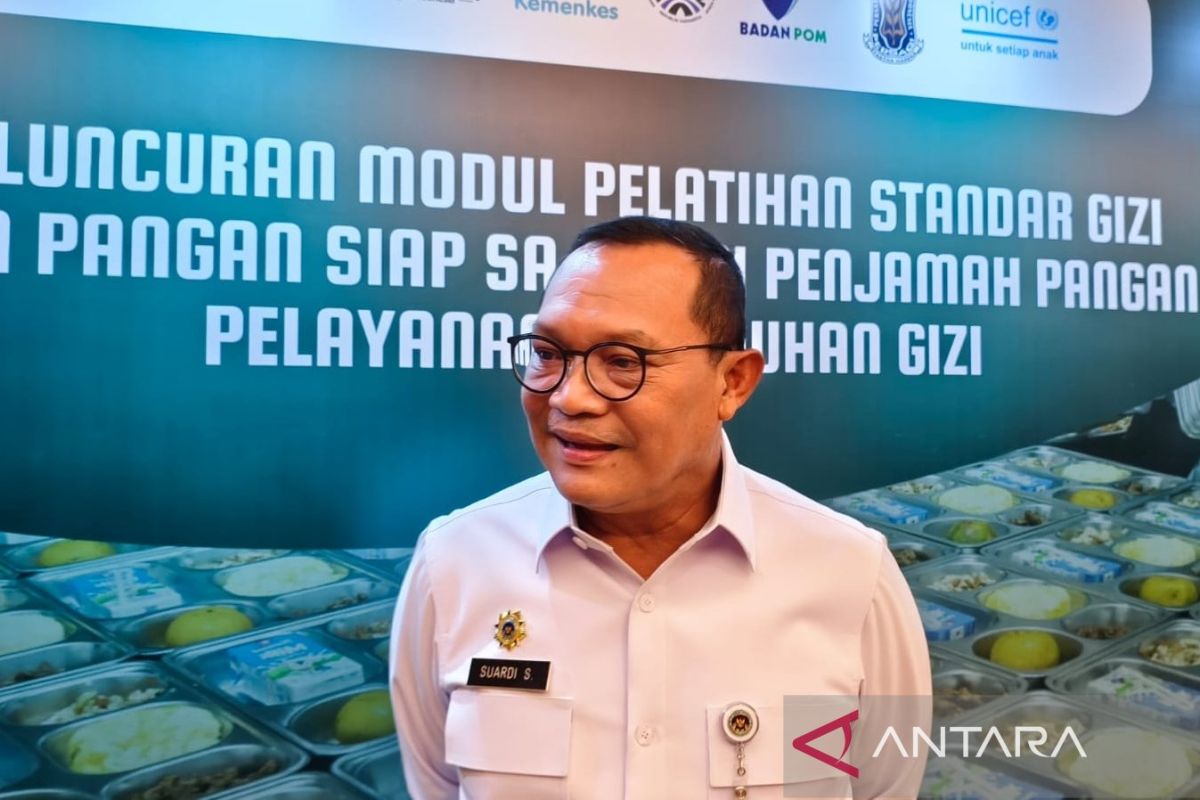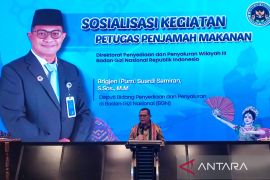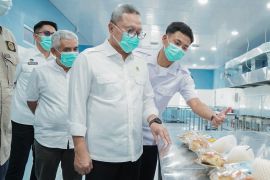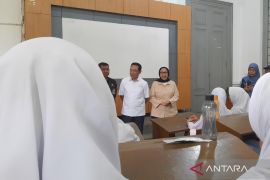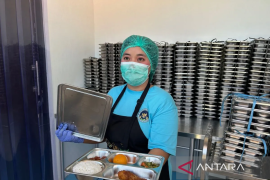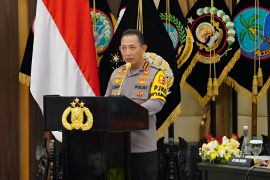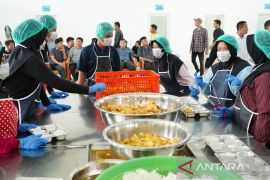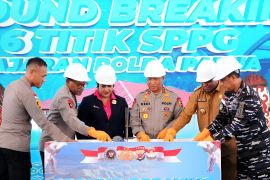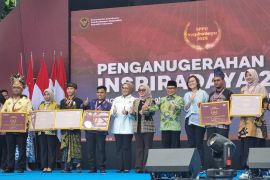The module was jointly designed by the BGN, Ministry of National Development Planning, Ministry of Health, Food and Drug Monitoring Agency (BPOM), Bogor Agricultural University, UNICEF, Indonesian Nutritionists Association (Persagi), health offices of all provinces, and other nutrition and food safety experts.
“They (food handlers) must be healthy. They are taught how to process raw materials into food ingredients and then cook ready-to-eat meals according to the module,” BGN’s deputy for provision and distribution, Suardi Samiran, said in Jakarta on Tuesday.
“The module is now being distributed; this is a collaboration between various parties,” he informed.
He emphasized that to ensure food safety in the Free Nutritious Meals (MBG) Program, the BGN has supplied cooking utensils, kitchen equipment, and cutlery that meet the Indonesian National Standards (SNI) to SPPGs.
“Cooking utensils, kitchenware, cutlery, and kitchen cleaning equipment are supplied by the BGN. There are 96 items in one kitchen. This kitchen is not just a kitchen; a healthy SPPG must have all 96 items,” he added.
Samiran said that there is no difference between the training provided to food handlers from cities and those in other areas, including underdeveloped, frontier, and outermost (3T) regions.
“I believe that improving public health doesn’t discriminate between cities and underdeveloped areas; everything must meet standards. The trainers are from UNICEF, local health offices, the Food and Drug Monitoring Agency (BPOM), and Persagi, and this will certainly have a positive impact,” he added.
According to data provided on the BGN’s website, as of 3:01 a.m. Western Indonesian Time (WIB) on Tuesday, at least 3,149 SPPGs were operating across Indonesia, serving up to 8.2 million beneficiaries.
Related news: Govt ensures operation standards for free nutritious meal kitchens
Translator: Lintang Budiyanti Prameswari, Martha Herlinawati S
Editor: Primayanti
Copyright © ANTARA 2025
